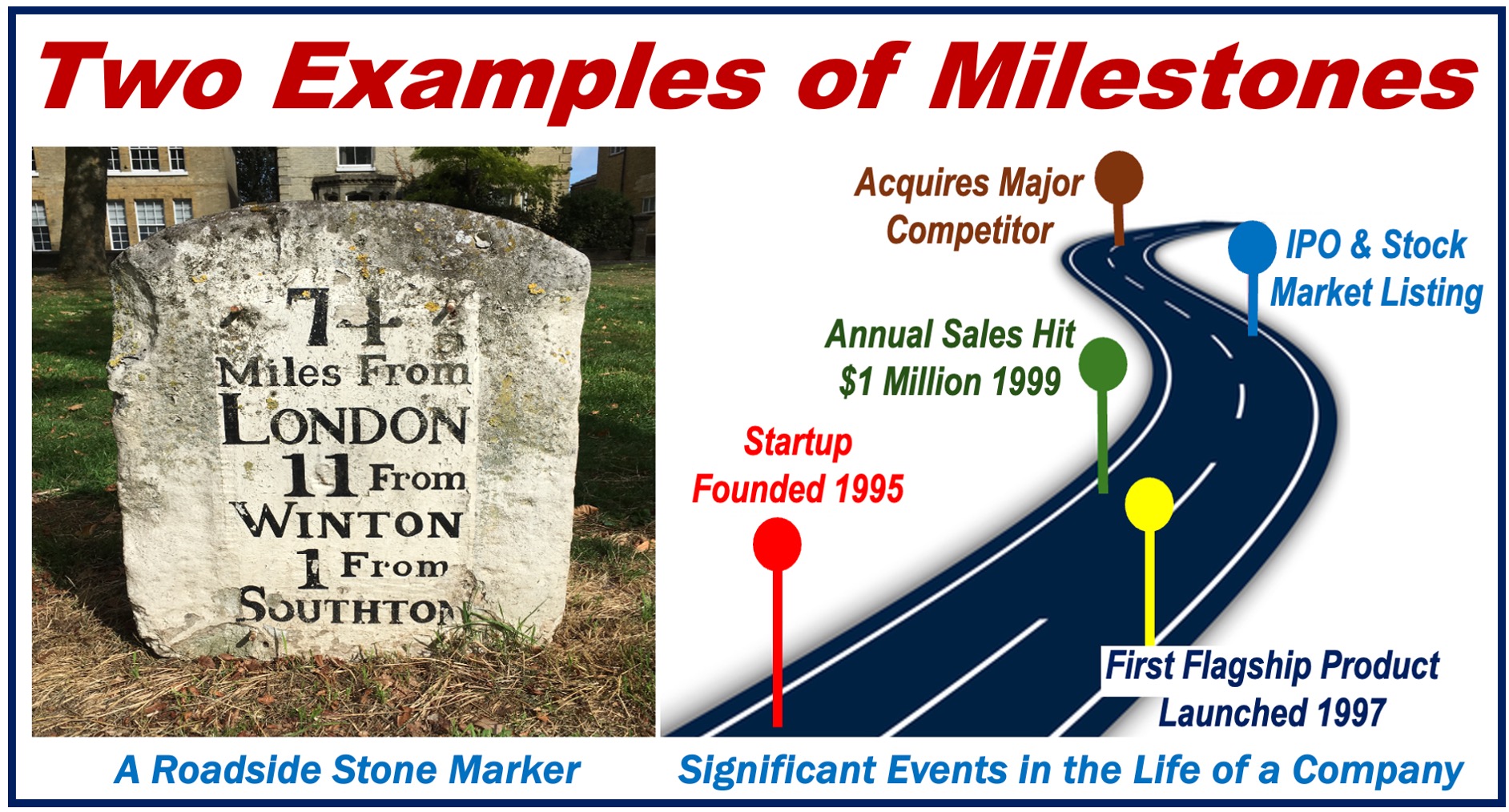Milestones were originally large stone markers on the side of the road that told you how far it was to the next town or city. They were common before we developed modern highway systems, and were important for travelers to gauge their progress on a journey.
According to etymonline.com, the term first emerged in the English language in 1756 with the meaning “stone or pillar set up on a highway or other line of travel to mark the distance in miles.”
Today, we can also use the term “milestones” when talking about ‘other’ types of journeys, such as the growth of an organism (including a human child), important moments in our personal lives, the development of a startup company, and the progress of a project.
An important milestone in a baby’s life, for example, is when they begin to walk unaided or utter their first word. When describing the progress of a startup, its first major milestones could be when it lands its first client or reaches sales of $10,000, $100,000, or its first million.
In the world of business, understanding what milestones are and how to use them can be a valuable tool.
The Cambridge Dictionary has these two definitions and an example sentence containing the term “milestone”:
“1. Stone or post at the side of the road that shows the distance to various places, especially to the nearest large town. 2. An important event in the development or history of something or in someone’s life. Example Sentence: ‘The opening of a branch in New York represented an important milestone for the company.”
Milestones in Projects
When planning a large project, it is common to break it down into smaller, more manageable chunks, known as milestones.
For instance, in building a house, key milestones could be laying the foundation, completing the framing, or installing the roof.
Unlike deadlines, which are the final due dates, milestones represent significant progress points where certain parts of the project are expected to be completed.

Milestones provide several benefits during a project:
-
Focus and Motivation
They help teams stay focused on their immediate objectives. Emphasizing the progress made so far boosts motivation.
-
Tracking Progress
Project managers can determine whether the project is ahead of, on, or behind schedule.
- Identifying Issues Early
Missing a milestone may signal a potential problem, allowing the team to identify and address it before it becomes a major setback.
Important Moments in Our Personal Lives
Milestones also have a place in our personal lives. Examples include passing a driving test and getting a driver’s license, graduating from school or college, buying our first home, and reaching a fitness goal, among others.
In this context, the term refers to points of personal achievement and growth.
We like to celebrate personal milestones. They help us recognize our progress and build on what we have achieved so far.
Creating Effective Milestones – Some Tips
You may find the following guidelines useful when creating milestones for your personal or professional life:
-
Be Specific
Define your milestone clearly and unambiguously. Avoid general statements like “improve website” and consider using more specific ones such as “launch redesigned website by June 15th.”
-
It Must Be Measurable
You need to be able to tell if a milestone has been reached. For example, “Complete the report by January 31st.”
-
Relevance
Your milestones should directly contribute to your goals and objectives.
-
Time-Bound
Having a target date gives you a stronger sense of accountability.
Final Thoughts
Like signs on the side of the road, milestones guide us in business and our personal lives. They help us identify our achievements, plan our next moves, and stay motivated as we journey towards our goals.
